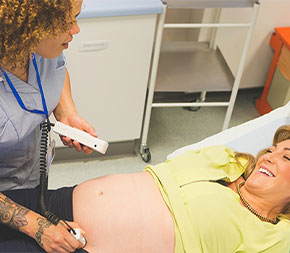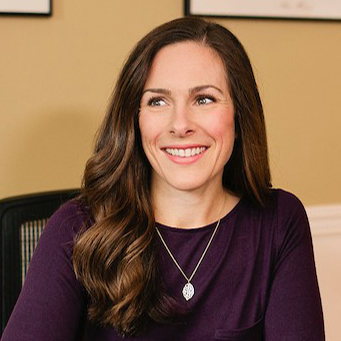Nurse Midwife Career and Degree Guide
Related Reading
Certified Nurse Midwife: Jobs and Degrees
Nurse midwives do more than attend births. Learn about the full scope of their role.
Certified nurse midwives (CNMs) provide lifelong care for women, from pregnancy and childbirth through menopause and beyond. A desire to care for others and promote women’s and infant health are qualities that can contribute to a nurse midwife’s success.
With your expertise, you’ll give patients the education to make the right decisions for themselves and their families. Learn more about what nurse midwives do.
In This Article
What Does a Certified Nurse Midwife Do?
All midwives care for women and newborns during and after pregnancy. However, certified nurse midwives are highly educated and trained medical professionals who can provide more comprehensive healthcare services than midwives without a nursing background.
Certified nurse midwives are advanced practice registered nurses (APRNs), a category of nurses that also includes certified nurse anesthetists, clinical nurse specialists, and nurse practitioners. APRNs have graduate degrees and generally earn higher salaries than nurses with less education and training.
Because of their high level of education, nurse midwives can perform many of the same tasks as physicians, including writing prescriptions and prescribing treatments.
CNMs are licensed to practice in all 50 states and the District of Columbia. Because of their high level of education, they can perform many of the same tasks as physicians, including writing prescriptions and prescribing treatments. Their education and training also allow them to serve as primary care providers for many women throughout their lives.
As part of their core duties, certified nurse midwives:
- Educate women on birth options and partner with them in planning their birth
- Monitor fetal growth, maternal health, and treat health conditions that arise during pregnancy
- Attend births in hospitals and birthing centers
- Perform low-intervention techniques to induce labor or relieve pain during labor
- Engage medical doctors or specialists as needed during pregnancy or childbirth
- Assist mothers with breastfeeding, self-care, and postpartum healthcare
- Develop treatment plans for patients
- Write prescriptions
- Order and review lab tests
- Perform physical exams
In some states, nurse midwives can operate independent practices without supervision.
What a Certified Nurse Midwife
Doesn’t Do
While CNMs have a high degree of autonomy, there are some things, including medical procedures, that they don’t perform:
Where Do Nurse Midwives Work?
According to the U.S. Bureau of Labor Statistics (BLS), certified nurse midwives work in:
Hospitals
Physicians’ offices
Outpatient care centers
Private birth centers
Education and Certification

To practice as a nurse midwife, you’ll need to earn a Master of Science in Nursing (MSN) from an accredited degree program and be licensed as a registered nurse (RN). Depending on your education and healthcare background, there are a few routes you can take to earn an MSN.
If you’ll have work and family responsibilities while you’re in school, there are flexible programs that offer a mix of classes online and on campus to meet your needs. Whatever you choose, note that you’ll have to attend clinics and other training in a medical setting.
To practice as a nurse midwife, you’ll need to earn a Master of Science in Nursing from an accredited degree program.
When you begin searching for nurse midwife programs, see what financial aid is available and whether a program offers job placement services.
When you finish school, you’ll need to pass the American Midwifery Certification Board (AMCB) exam to practice as a CNM.
Career Paths
For certified nurse midwives interested in moving beyond attending births and providing primary care for women, it might be worth pursuing a DNP.
A doctorate could open the door to moving into government service, global healthcare, public policy, research, or university teaching roles.
Other Types of Midwives
Certified nurse midwives shouldn’t be confused with other midwives. Only CNMs are registered nurses, and their education and training can make a significant difference in their salary. Other midwives and their roles include:
Registered midwives (RMs) and licensed midwives (LMs)
Midwives who complete training, an apprenticeship, self-study, or a college degree program outside the field of nursing. These independent practitioners often care for women planning a home birth. They are not registered nurses (RNs).
Certified professional midwife (CPM)
An independent midwife practitioner who meets certification standards of the North American Registry of Midwives (NARM). These midwives can train through an apprenticeship or attend a midwifery program or school. They primarily attend births at home.
Certified midwife (CM)
Midwives who have an undergraduate degree outside of nursing but have earned a graduate degree in midwifery. They take the same certification exam as certified nurse midwives and have the same scope of practice. To date, only six states recognize certified midwives and allow them to practice: New York, New Jersey, Maine, Rhode Island, Missouri, and Delaware.



